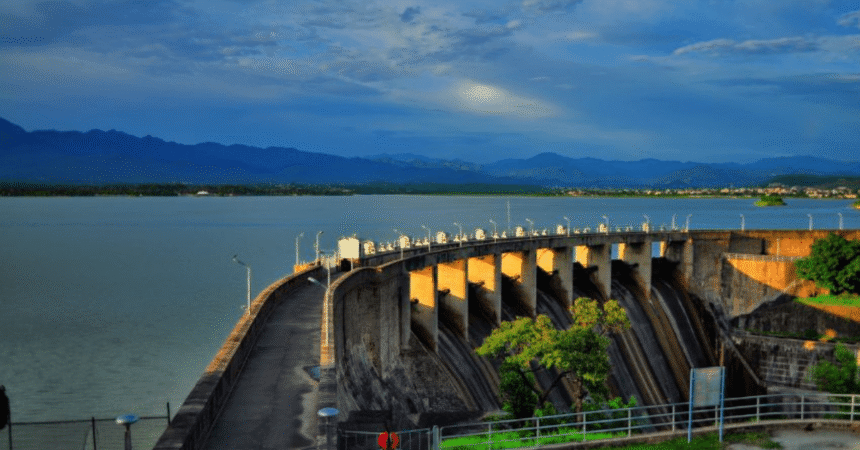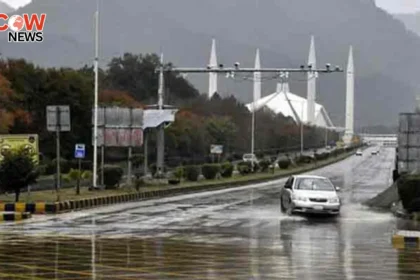Introduction
Islamabad, the capital of Pakistan, is renowned for its picturesque landscapes and well-structured urban planning. However, the city is currently facing a severe water crisis that threatens the health and well-being of its 2.3 million residents. The crisis has highlighted the urgent need for effective water management and infrastructure development to meet the growing demands of an expanding population. As the situation becomes increasingly dire, it is imperative to explore the underlying causes, impacts, and potential solutions to the water shortage in Islamabad.
Current Water Supply Situation
Recent reports indicate that Islamabad requires approximately 126 million gallons of drinking water daily. However, the Capital Development Authority (CDA), the agency responsible for water supply in the city, currently delivers only 70 to 80 million gallons per day. This significant shortfall of nearly 50 million gallons has left many neighborhoods struggling for access to clean water, leading to an escalating crisis that affects both urban and rural communities.
Infrastructure Challenges
The existing infrastructure consists of three main dams—Smalley Dam, Rawal Dam, and Khanpur Dam—as well as 201 tube wells. Despite these resources, the CDA has been unable to bridge the gap between supply and demand. Several factors contribute to this shortfall:
- Rapid Population Growth: Islamabad’s population has been growing at a staggering rate. With more people moving to the capital for better opportunities, the demand for water has surged, outpacing the existing supply capabilities.
- Aging Infrastructure: Much of the water distribution infrastructure is outdated and in need of repair. Leaks and inefficiencies in the system contribute to significant water loss, further exacerbating the shortage.
- Urbanization: As more areas are urbanized, natural water recharge areas are being paved over. This reduces groundwater replenishment and limits the natural systems that help maintain the water supply.
Water Quality Concerns
In addition to the quantity issues, the quality of available water is also a significant concern. Many residents have reported instances of contamination in their water supply, leading to health risks. Poor water quality can result in a range of waterborne diseases, including cholera and dysentery, which disproportionately affect vulnerable populations such as children and the elderly. This dual challenge of quantity and quality makes the water crisis in Islamabad particularly complex.
Impact on Residents
The repercussions of the water shortage are felt acutely by the residents of Islamabad. Many households struggle daily to secure sufficient water for drinking, cooking, and sanitation. The impact of the crisis can be categorized into several key areas:
Economic Strain
Families often resort to purchasing water from private suppliers, which can be exorbitantly priced. This practice places a significant financial burden on households, especially those in lower-income brackets. As a result, families may have to prioritize water over other essential needs such as food and healthcare.
Health Risks
The scarcity of clean water has dire implications for public health. Limited access to safe drinking water leads to an increase in waterborne diseases. Reports have indicated rising cases of gastrointestinal illnesses, particularly among children. The health system in Islamabad is already under strain, and the added burden of water-related illnesses could overwhelm healthcare facilities.
Social Disparities
The water crisis disproportionately affects marginalized communities, exacerbating social inequalities. Wealthier neighborhoods often have better access to water resources, while poorer areas face severe shortages. This disparity can lead to social unrest and increased tensions within the community, as frustrations mount over unequal access to a basic necessity.
Government Response and Proposed Solutions
In response to the ongoing crisis, the CDA has announced plans to construct two new dams: Shahdara Dam and Chinyot Dam. These projects are seen as essential for alleviating the water shortage and are projected to be completed within the next four years.
New Dam Projects
The Shahdara Dam is expected to supply an additional 6 to 7 million gallons of water daily, while the Chinyot Dam could contribute 12 to 14 million gallons. These additions would help to reduce the current shortfall, but they raise questions about the long-term sustainability and management of water resources.
Short-Term Relief Measures
In addition to the long-term dam projects, the CDA has indicated that the Dutara Dam water supply project is expected to be completed within the next four months. This initiative aims to provide immediate relief to residents suffering from the current shortage. However, while these short-term measures may alleviate some pressure, they do not address the broader issues of infrastructure and resource management.
The Role of Climate Change
The water crisis in Islamabad is also exacerbated by climate change, which has led to altered rainfall patterns and increased temperatures. These changes have reduced water availability in existing reservoirs, further straining the city’s water supply.
Impact of Climate Change on Water Resources
Climate change impacts the hydrological cycle, influencing both the quantity and quality of water resources. Extreme weather events, such as prolonged droughts or intense rainfall, can disrupt normal water supply patterns. Moreover, increased evaporation rates due to higher temperatures can lead to greater water loss from reservoirs and open water bodies.
Adaptive Strategies
As the effects of climate change become more pronounced, it is essential for policymakers to consider adaptive strategies. These strategies may include enhancing water conservation practices, investing in sustainable infrastructure, and integrating climate resilience into urban planning.
Community Involvement and Awareness
Community involvement is critical in addressing water scarcity. Raising awareness about water conservation techniques and promoting responsible usage can empower residents to play a role in mitigating the crisis.
Educational Campaigns
Educational campaigns aimed at informing the public about the importance of water conservation can lead to significant improvements in water management. Programs that teach residents about efficient water usage, such as rainwater harvesting and low-water-use gardening techniques, can help foster a culture of sustainability.
Local Initiatives
Encouraging local initiatives, such as community-led clean-up and conservation projects, can also enhance engagement. When communities take ownership of their water resources, they are more likely to implement practices that contribute to long-term sustainability.
Sustainable Water Management Strategies
To effectively tackle the water crisis, Islamabad must adopt sustainable water management strategies. These strategies should focus on both demand management and supply enhancement.
Integrated Water Resource Management (IWRM)
Implementing an Integrated Water Resource Management (IWRM) approach can help balance the diverse needs of water users. This holistic framework considers the interconnectedness of water supply, demand, and environmental sustainability.
Investment in Infrastructure
Prioritizing the repair and expansion of existing water infrastructure is essential for improving service delivery and reducing losses. Investments in modern water treatment facilities, as well as the enhancement of distribution networks, can help ensure that the available water reaches those who need it most.
Public-Private Partnerships
Engaging the private sector in water management can lead to more efficient and innovative solutions. Public-private partnerships (PPPs) can facilitate investment in water infrastructure and provide access to expertise in modern water management practices.
Regulatory Framework
Establishing a robust regulatory framework for water usage and conservation can encourage responsible practices among consumers and industries alike. Effective regulation can help mitigate water wastage and promote sustainable consumption patterns.
The Role of Technology
Technological advancements can play a vital role in addressing water scarcity. Smart water management systems that utilize data analytics and real-time monitoring can help optimize water distribution and reduce waste.
Smart Water Management Systems
Implementing smart meters and sensors can provide valuable data on water usage patterns. This information can be used to identify inefficiencies in the system and inform targeted interventions to reduce water loss.
Desalination and Water Recycling
Investments in technologies such as desalination plants and water recycling facilities can provide alternative sources of water. These innovations can contribute to a more resilient water supply system and reduce reliance on traditional freshwater sources.
Policy Recommendations
To effectively address the water crisis in Islamabad, a multi-faceted approach is necessary. The following recommendations can help guide policymakers in their efforts:
- Implement Integrated Water Resource Management (IWRM): Adopt a holistic approach that considers all aspects of water supply, demand, and environmental sustainability.
- Invest in Infrastructure: Prioritize the repair and expansion of existing water infrastructure to improve service delivery and reduce losses.
- Engage the Private Sector: Foster public-private partnerships to leverage investment and expertise in water management.
- Establish a Regulatory Framework: Create policies that encourage responsible water usage and promote conservation practices.
- Launch Education and Outreach Programs: Develop initiatives to raise awareness about water conservation techniques and promote community involvement.
Conclusion
The water crisis in Islamabad poses a multifaceted challenge that requires urgent attention from both the government and the community. While the proposed dam projects may offer some relief, they are only part of a larger strategy needed to ensure long-term water security. By investing in sustainable practices, leveraging technology, and fostering community engagement, Islamabad can work toward a future where water scarcity is no longer a pressing concern. Addressing these challenges not only protects the health and well-being of residents but also ensures the city’s resilience against the impacts of climate change and population growth.
As Islamabad continues to grow and develop, it is crucial that water management remains a priority. By taking a proactive approach and implementing comprehensive solutions, the capital can secure its water future and enhance the quality of life for its residents.
#Islamabad #WaterCrisis #SustainableDevelopment #WaterManagement #ClimateChange #CommunityAwareness #PakistanWaterShortage #InfrastructureDevelopment #WaterConservation #PublicHealth







